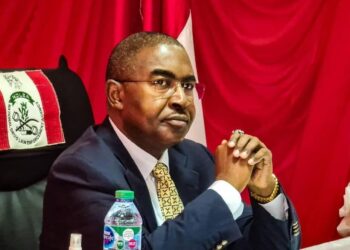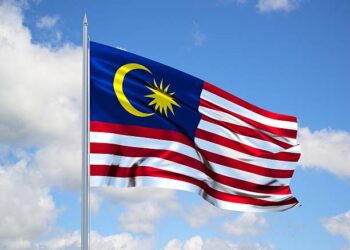The British High Commissioner to Nigeria, Richard Montgomery, revealed that Nigerian student enrollment in British higher institutions has soared to a staggering 127,000 students during the previous academic year.
This remarkable increase, representing a five-fold rise over the past three years, underscores the growing preference among Nigerian students for British universities.
Speaking during an exclusive interview with the News Agency of Nigeria (NAN) in Abuja, High Commissioner Montgomery clarified that the United Kingdom’s new policy on restricting foreign student visas should not be misinterpreted as an intentional deterrent for Nigerian students.
Instead, he emphasized that the policy is primarily aimed at effectively managing the pressure on social services caused by the influx of international scholars. He further highlighted that Nigerian students enjoy an exceptional 97 percent visa approval rate, urging Nigerians to view the new visa regime as a positive development for both countries.
- “Three years ago, there were 20,000 Nigerian students in British higher education institutions, and last year, the number increased to 127,000. So, we had a five-fold increase in the number of students from Nigeria coming to UK universities,” High Commissioner Montgomery revealed.
High Commissioner Montgomery emphasized the robust people-to-people links between the UK and Nigeria, pointing out that Nigerians received a notable 325,000 out of the three million visas granted by the UK last year, representing over 10 percent of the total. He expressed his satisfaction that UK universities continue to attract Nigeria’s most talented and brightest students.
- “We are delighted that UK universities continue to attract the best and brightest from Nigeria… Nigerians alone received 325,000 of those 3 million visas. So more than 10 percent of the visas from the UK are to Nigerian citizens, which is fantastic,” High Commissioner Montgomery stated.
Shedding light on the policy change, he explained that it primarily affects non-research degree programs and students who opt to bring their dependents.
The rising number of dependents accompanying Nigerian students has put a strain on housing and social services in university towns, necessitating adjustments to effectively manage the increasing demands.
- “The words that are being used in the media to describe the situation are misrepresenting. We are making an adjustment that enables us to manage the demands on services in university towns and elsewhere,” High Commissioner Montgomery clarified.
- “The UK granted three million new UK visas of various types, including students and other visitors. It goes back to the fact that the UK and Nigeria have strong people-to-people links,” said High Commissioner Montgomery. “Nigerians are very successful in acquiring visas. We have a 97 percent approval rate, and so that is the big context.”
Nigerian students pursuing education in the UK are poised to benefit immensely from the international exposure and extensive networks offered by British universities, significantly enhancing their future prospects.
High Commissioner Montgomery expressed his belief that Nigerian students stand to gain massively from the international exposure and networks offered by studying in the UK. He stated, “We have had a very significant rise in the number of people coming from all around the world, not just from Nigeria. This has caused some strain on the UK… Sometimes it is difficult to find good accommodation as a student, and there is real pressure on housing and social services for students.”
Despite the challenges posed by the influx of international students, High Commissioner Montgomery emphasized the UK’s commitment to accommodating Nigerian students. He expressed pride in the UK’s research institutes and higher education institutions, which rank among the top hundred universities globally. “The higher institutions are very open to students going to study in the UK,” he remarked.























